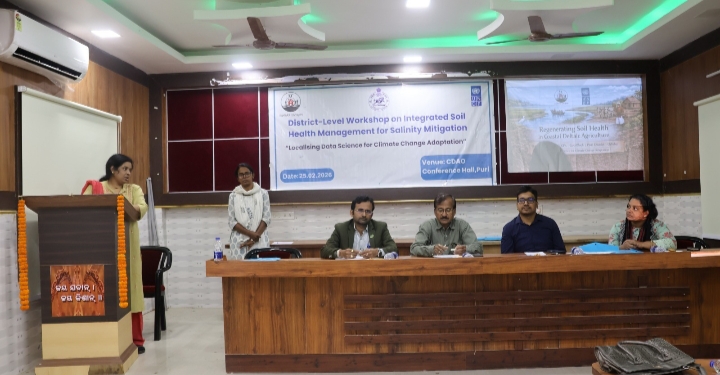The expert guide to taking control of your emotions
During one of my visits to National Institute of Mental Health and Allied Neuroscience (NIMHANS) , Bangalore, I discussed the matter with experts in the psychology of emotions, and they have taught me a set of tools that can help all of you to tend your wellbeing.
Psychologist all over the world….. have has been ” keen observer of emotions” and the often they found that ….people use counter-productive ways to deal with difficult feelings.
“It seemed as if people were all just stumbling along, occasionally finding an accidental or Band-Aid solution to help them to manage their emotional lives. Sometimes their…improvised tools helped. Sometimes they made things worse. It seemed so haphazard, isolating, and inefficient,” .
Psychologist at NIMHANS, Bangalore speaks about their… Emotion and Self-Control programs , that they follow ……in clinical situations….in case of difficult patients…. , The Aims of psychologists are to equip their all patients with a set of tools that will help them to navigate their ups and downs more constructively.
We also must discuss …. about the benefits of “negative” feelings, creating safe spaces and emotional oases – and the surprising upsides of distraction.
What are the most common misconceptions about emotions?
One big misunderstanding is that there are good emotions and there are bad emotions and that we should strive to live our lives free of all the bad emotions.……………. This is an error, as far as psychologists are concerned:——– we evolved the ability to experience all emotions for a reason. ANGER .. can motivate us to correct an injustice if there’s still an opportunity to fix things. SADNESS … can lead us to introspect and make new meaning out of situations that have fundamentally been altered. Envy can motivate us to strive for things that we want to achieve. In the right proportions – that is such a key phrase – all emotions are useful.
One way of driving this point home is to think about physical pain , which is about as negative an emotional state as we can imagine. Many of us yearn to live lives free of any kind of physical pain. But some people are born without the capacity to experience pain, due to a genetic anomaly, and those kids end up dying younger than people who can experience pain. If they get their hand stuck in the fire, there’s no signal that tells them to pull the hand away. The same principle is true for all our negative emotions.
People often find it liberating to know that they don’t have to strive to live a life without negativity. What you want to strive to achieve is just keeping these emotional experiences in check, and I think that’s a much more tenable goal.
ANOTHER IMPORTANT QUESTION IS……
Many people believe that their emotions are beyond their control . Where do you think this defeatist attitude comes from? And what are the consequences?
Psychologist.. think… it depends on the facet of our emotional experiences that we’re talking about. We often don’t have control over the thoughts and feelings that are automatically triggered as we live our lives throughout the day, but we can control how we engage with those thoughts and feelings once they’re activated, and that’s where the promise of emotion regulation resides.
Listening to music is one example of a tool that’s underutilized – It is very useful for Emotional Catharsis .
If you don’t think exercising is going to make you more fit, for example, why on Earth would you devote effort to exercising?
And if you don’t think that you can use different strategies to manage your emotions, why would you ever avail yourself of them?
So how can we change our responses to difficult feelings?
Listening to music is one example of a tool that’s underutilised. If you ask people why they listen to music, almost 100% of participants will say that they like the way it makes them feel. But if you then look at what people do when they are struggling with their emotions – such as the last time they were angry, anxious or sad – only a small minority report using music.
It’s just one category of what psychologists call…. “shifters”,… which are the tools that can push our emotions around. And once you know how they work, you can be a lot more strategic in how you use them in your life.
Psychologists…. also describe how a change in environment can boost our wellbeing. We might have experienced this on holiday, but how can we apply this principle to our day-to-day lives?
As psychologists say, a lot of people feel restored when they go to an entirely different place that is free of associations with work. But we can’t always take that vacation, and what psychologists like to remind people is that there are often places locally that can shift our mood.
We talk a lot about getting attached to other people, and when things aren’t going well, being in the presence of that figure can be a source of comfort and resilience. But it turns out we also become attached to places in our environment.
You can also curate your environment. We know that plants and images of green spaces can be restorative. So can photos of loved ones. We’ve done research where we expose people to pictures of loved ones while they’re struggling with a problem. We find it speeds up the rate at which they “repair” following the experience.
Is the aim to be more conscious of what we can do to change how we’re feeling – rather than just leaving it to chance?
Psychologists are surprised to find that distraction and avoidance can be a productive way of dealing with emotions. The reason is …….
Avoidance – trying actively not to think about something by distracting yourself or engaging in other behaviours – is generally derided as an unhealthy tool. And there’s no question that chronically avoiding things has been linked with negative outcomes; it’s not an approach that psychologists… would advocate for anyone to adopt.
Sometimes people are benefited from immersing themselves in something totally unrelated for a day and then coming back to the problem.
But we do not have to choose between either approaching or avoiding our emotions; we can be flexible and do both. There’s research showing that people who are effective at both approaching and avoiding their emotions, expressing and suppressing, often fare well in the long term.
What might that look like in our lives? Well, let’s say you’re triggered by something. You get emotional about an argument you have had with someone. One approach might be to address it right there at that moment, but it might make sense to take some time away from thinking about that problem or confronting it. I say that as the kind of person who, in general, does like to confront things right in the moment, just get to the bottom of it, and move on. But sometimes I’ve benefited from immersing myself in something totally unrelated for a day and then coming back to the problem. I might come back and realise it’s not a problem at all, or I’ll find that the intensity of the problem is diminished, and I can approach it from a broader perspective.












Leave a Reply